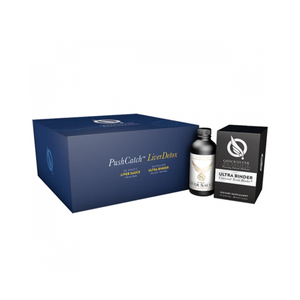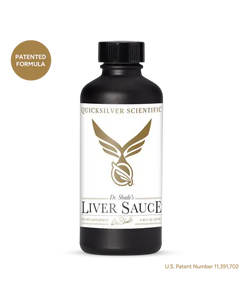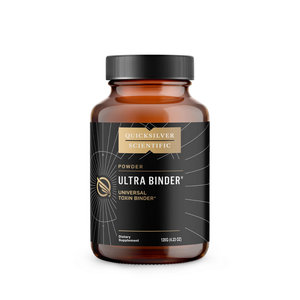
Reverse osmosis is one of the most thorough filtration methods, removing upwards of 99.9% of all contaminants from water. Traditional RO systems were installed under the sink, but more recently the invention of countertop systems has led to more accessible clean water for many people. In this article we’ll discuss under sink vs countertop reverse osmosis filters, and the advantages and disadvantages of each.

Countertop Reverse Osmosis Systems
Countertop reverse osmosis systems are small, compact filter units that combine multiple stages of filtration within a smaller footprint. They sit on a kitchen countertop and are either connected to a kitchen sink faucet via a hose, or have a water holding tank which is filled like a pitcher.
Advantages
More portable option
A huge benefit of countertop reverse osmosis units is that they’re not stuck in one location. Installation typically requires simply connecting the system up to a kitchen sink faucet, which takes less than 5 minutes to do. Some countertop reverse osmosis filters are completely independent and just need to be filled with water to operate, making them even more portable. You can use a countertop RO filter in any location where you have access to a kitchen sink.
Lower-cost solution
Compared to most under-sink reverse osmosis units, countertop filters tend to be much affordable. If you’re looking to achieve the benefits of reverse osmosis without spending too much money, countertop reverse osmosis systems are a wallet-friendly option to consider.
Simple installation
With a countertop reverse osmosis filter, you can benefit from a much quicker installation. Because you don’t need to install the filter at your waterline, it’s just a case of clicking the filters in place and adding water. Because of how easy it is to install and use, you have more control over when to use the filter, where to install it, how and when you store it away, and more.
Disadvantages
Extra effort to use
Some reverse osmosis filters need to be manually filled with water, rather than connecting to your kitchen faucet. This means more effort on your part, and some people with mobility issues may struggle to lift a container full of water.
Smaller capacity
Having a manual-fill countertop reverse osmosis system means the system will only be able to filter a specific amount of water at a time. If you have a large family, you may find that you need to fill the filter fairly frequently to ensure you have access to enough water throughout the day.
Not always immediate
Again, if you have a countertop RO filter that you need to fill with water yourself, you may have to wait some time for all the water to filter through the system before you can drink it. This typically takes between 10 and 20 minutes, depending on which option you go for. The Aqua Tru filter, for example, filters through one gallon of water in less than 10 minutes. If you’d rather have constant access to a clean water supply, some types of countertop filter may not be for you.

Under Sink Reverse Osmosis Systems
Under-sink reverse osmosis filters are installed underneath a kitchen sink, where they’re connected directly to the cold water line, and provide immediate access to clean water, usually from a designated faucet.
Advantages
Immediate access to clean water
Perhaps the biggest under sink RO benefit of all is that it produces clean water with no delay. When you turn on your faucet, you’ll be able to fill a glass with clean RO water almost as quickly as you could with no filter installed.
Minimal maintenance
Owning an under-sink reverse osmosis filter requires very little work on your part. Once installation is out of the way, you only need to worry about replacing the filters and RO membrane. As most filters last around 6-9 months, and the RO membrane lasts for 2 years, this small maintenance task isn’t something you’ll have to constantly keep at the forefront of your mind.
Multiple filtration options
When buying an under-sink filter, you can opt for a standard system with a tank or a more modern tankless system. Both have their pros and cons - tankless systems tend to cost more but take up less space, while tank-based systems have a bigger footprint but are the more affordable option.
Disadvantages
Difficult installation
If you consider yourself fairly handy, you shouldn’t find it too challenging to install an under-sink filter. But if your DIY skills are a little rusty, you may struggle to follow the instructions for installing the system at your waterline. For this reason, you may need to pay for a plumber to do the job for you.
Not all parts included
The majority of under-sink RO filters come with everything you need for the system itself: the filters and filter housing, RO membrane, bypass valve, and so on. But many systems don’t come with all the fittings and connections you need to properly install the unit, which may require a trip to your local DIY store.
Not portable
Once you’ve installed an under-sink RO system, that’s that. It’s not something you can quickly install and remove as you please, so you won’t be able to take this system to your office or a vacation home as you could with a countertop filter. Additionally, under-sink RO filters may not be an option for you if you’re renting because the invasive installation usually violates terms in a typical rental contract. An above counter filter, however, is the ideal solution for renters.
So Which is Better, Under Sink or Countertop RO?
Both types of reverse osmosis filter can help you to save money in the long run, especially if you exclusively drink bottled water. A reverse osmosis system, whether countertop or under-sink, is an investment upfront, but it usually pays itself off after between 1 and 2 years.
The type of system you opt for will depend on your personal preferences, available space, plumbing skills, and family size. But it would be difficult to say that one is better than the other.






I bought a countertop unit and couldnt figure out how to back wash it. Table top . They insist you don’t have to just put the water in and a light will come on indicating purification and then you drink. No one says anything about the degree of “purification” in each unit. Have these companies even tested the water from their filters? I want to know if you get dirtier and dirtier filters isn’t the risk of iingesting contaminants worse that if one backwashes? Please answer me. I am about to return a unit..
Good balanced article
http://slkjfdf.net/ – Uvokiwe Iwumariqi wdj.achy.waterandwellness.com.iwb.eq http://slkjfdf.net/
http://slkjfdf.net/ – Omwojnue Otogaye dhf.zhha.waterandwellness.com.tyy.px http://slkjfdf.net/